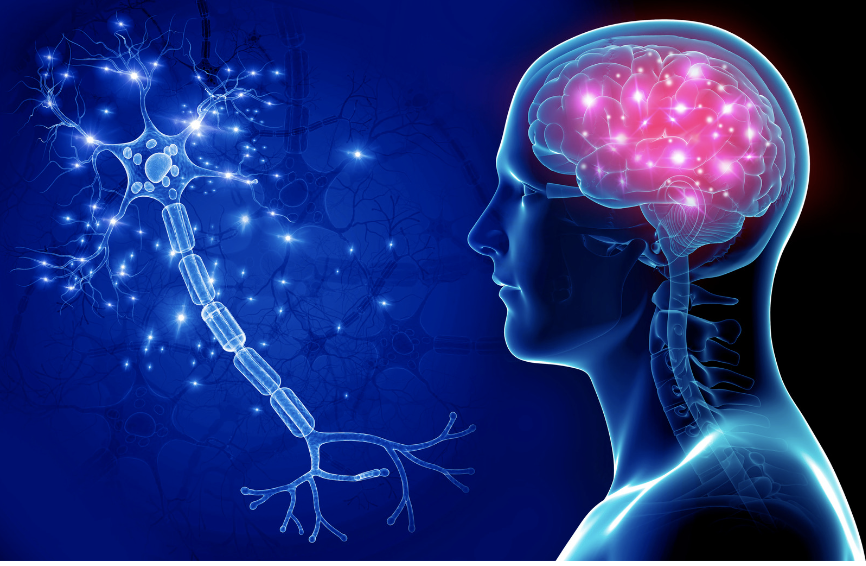Your body has its own electrical grid. Simply stated, a small cell, known as a neuron, is connected to another neuron by a long, delicate finely specialized “wire.” Neurons come together to form the nervous system. There are over seven trillion nerves in the human body (1). Nerves transmit signals between your brain, your spinal cord, and the rest of your body (1). To help a nerve convey a signal quickly, the long wire that extends from the nerve cell is coated in an insulating layer made up of protein and fatty substances known as the myelin sheath.
A common condition I treat in my medical practice is peripheral neuropathy. Peripheral neuropathy occurs when there is damage to nerves located outside of the brain or spinal cord (2). Typically, individuals come to me with concerns of weakness, numbness, or pain. Nerve damage may also cause symptoms of poor digestion, reduced urinary control, or inadequate blood circulation (2).
Peripheral nerve pain can be debilitating. The pain may feel like a stabbing knife, or it may feel as though you are being set on fire. Neuropathic symptoms can also present as a numbness or tingling. Peripheral neuropathy often results from trauma, infections, exposure to toxins, or metabolic dysfunction (2). A common cause of peripheral nerve damage is uncontrolled diabetes (2).
Long-term stress may cause the body to be in a pro-inflammatory state (3). When an individual faces a taxing physical event, environmental condition, or psychological trauma they expend a high level of energy. Increased oxygen intake is required to meet this energy demand (4). High respiratory oxygen intake and metabolic turnover generates free oxygen radicals (4). Free radicals have a damaging effect on the myelin sheath (3). As the myelin sheath is destroyed, nerves are unable to properly send signals from the body to the brain. In addition, the broken nerve may instead send an impulse where the brain feels a sensation of stabbing, burning, numbness, or tingling from the body to the brain.
For example, picture the cable (nerve) from your television to the wall. Now, if you are having increased stress, your house becomes infected by rats (radicals) that chew on the cable. The cable has significant defects, or holes. Overtime, the picture you are watching on the television becomes distorted, flickers in and out, or even stops working all together.
Certain key antioxidants, such as benfotiamine, glutathione, alpha-lipoic acid, vitamin B complex, and others, are known to be free radical scavengers (3). Antioxidants may help reduce the deleterious effects inflammatory conditions have caused on peripheral nerves (3). It is equally important to incorporate ways to reduce external stressors on the body to avoid unnecessary inflammation in the first place. Mindfulness, the practice of living in and accepting the moment, can be a great tool in emotional regulation.
In summary, stress –> free radicals –> nerve damage –> peripheral neuropathy.
Improved mental wellbeing + anti-oxidants –> reduce nervous system inflammation and hopefully decreases peripheral neuropathic discomfort.
References:
- Lambrou D. Important Nerves in the Body and What They Do. NorthEast Spine and Sports Medicine. Accessed 19 Oct 2022. https://www.northeastspineandsports.com/blog/important-nerves-in-the-body-and-what-they-do/#:~:text=Believe%20it%20or%20not%2C%20there,the%20rest%20of%20your%20body.
- Peripheral Neuropathy. Mayo Clinic. Accessed 19 Oct 2022. https://www.mayoclinic.org/diseases-conditions/peripheral-neuropathy/symptoms-causes/syc-20352061#:~:text=Peripheral%20neuropathy%2C%20a%20result%20of,
including%20digestion%2C%20urination%20and%20circulation. - Peterson F. Peripheral Neuropathy. Waiting Room Magazine. 2022; 142-144.
- Srivastava K, Kumar R. Stress, Oxidative Injury and Disease. Indian J Clin Biochem. 2015; 30(1): 3-10.

